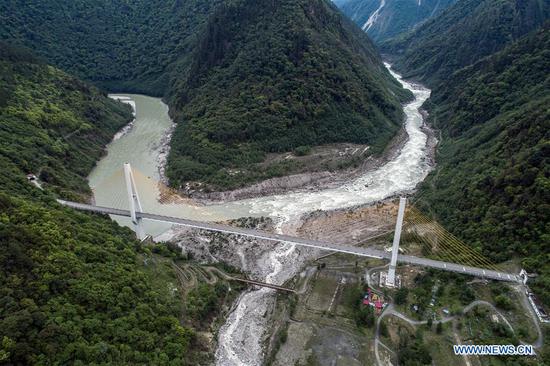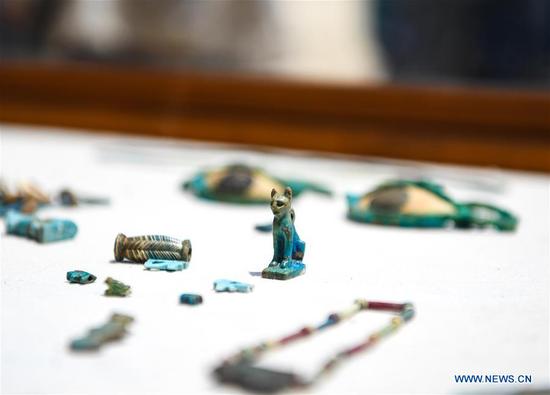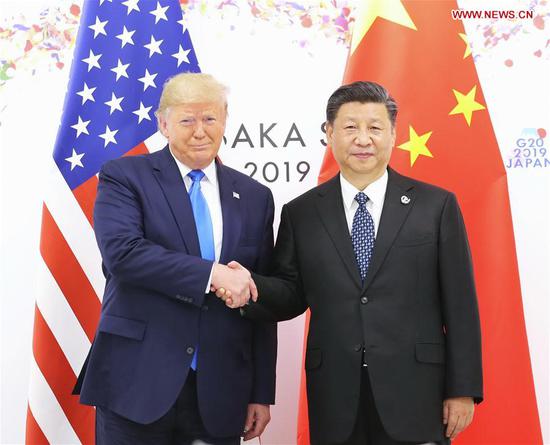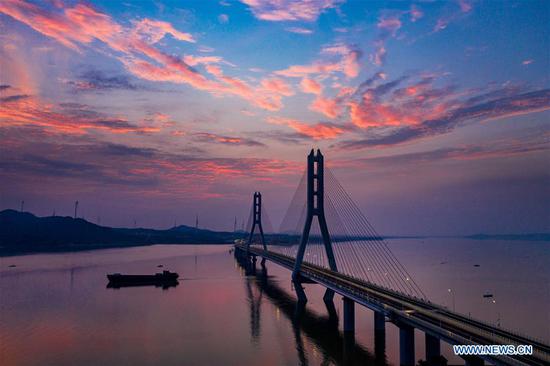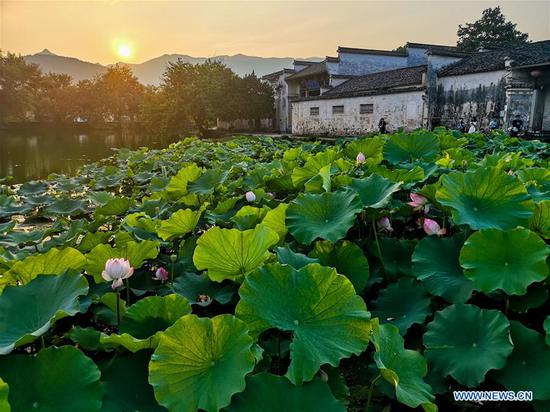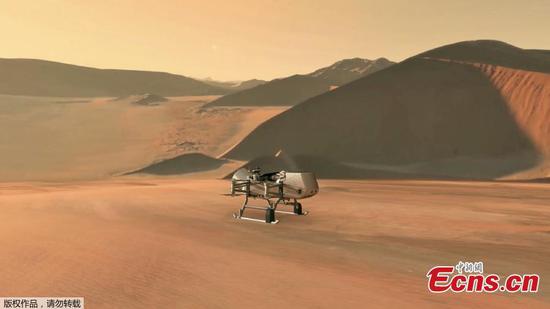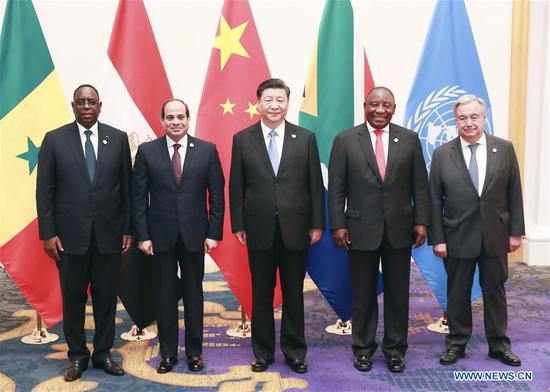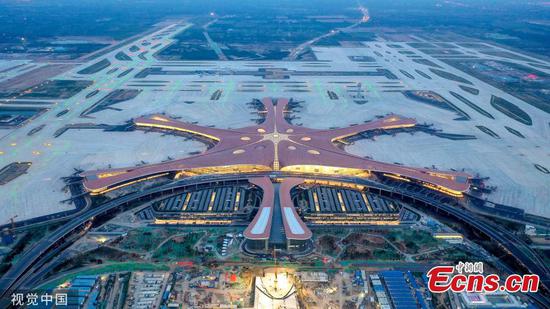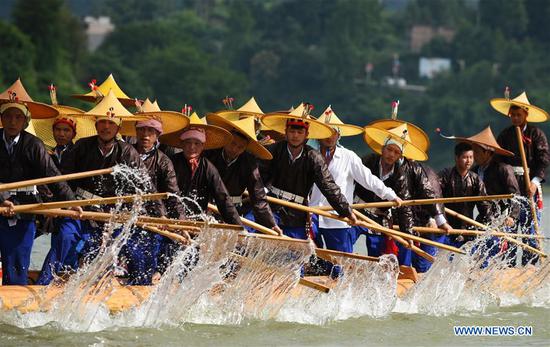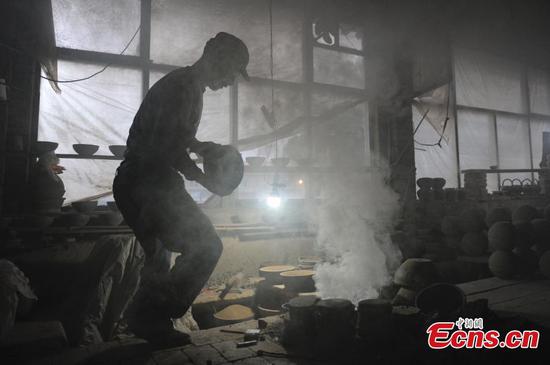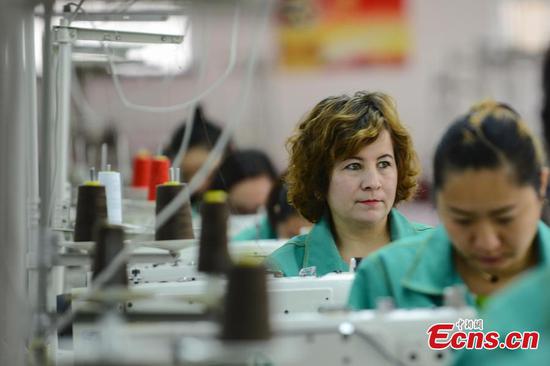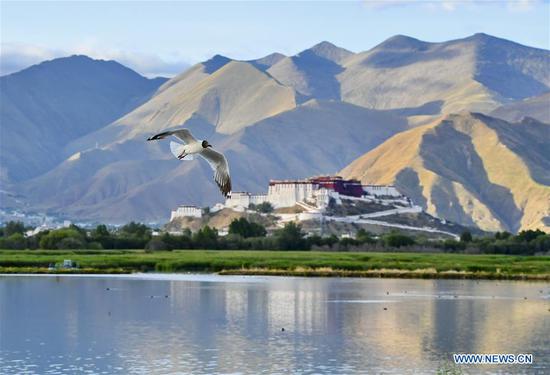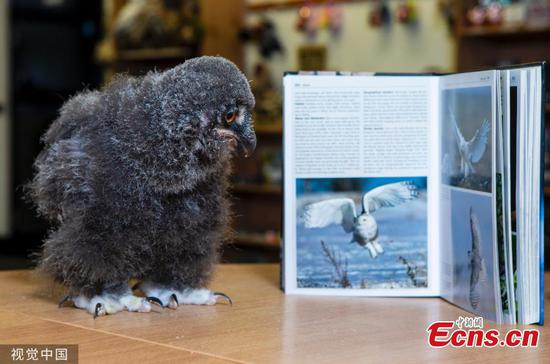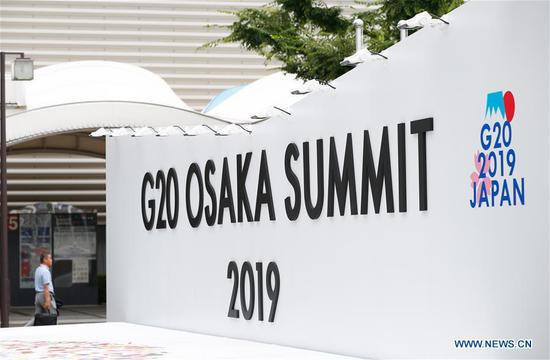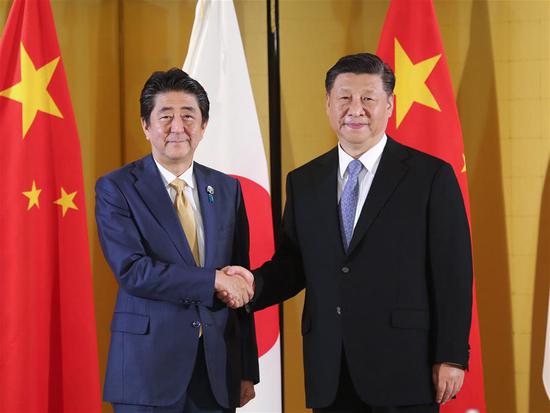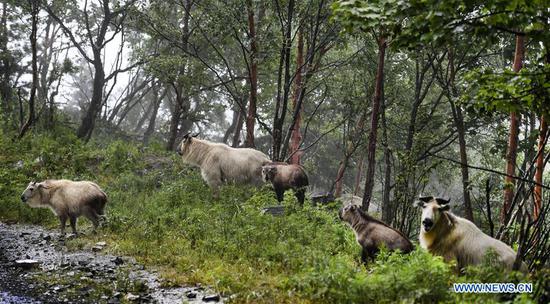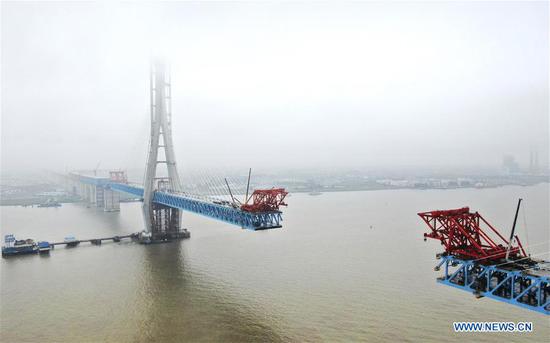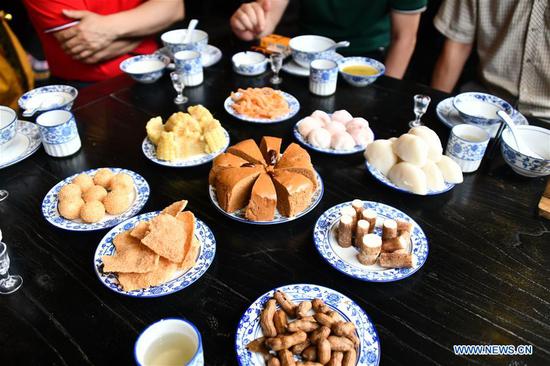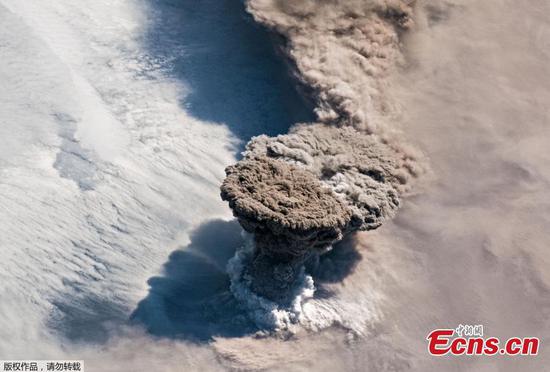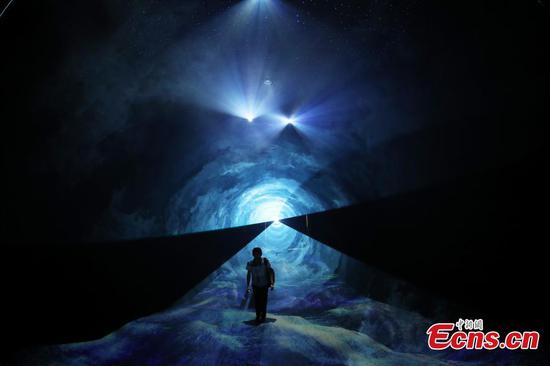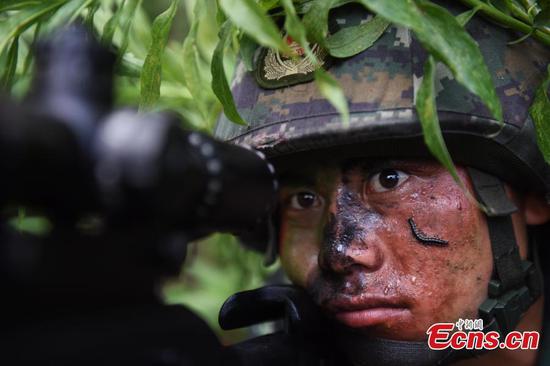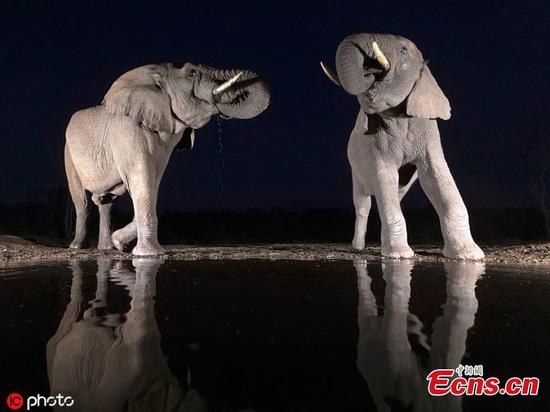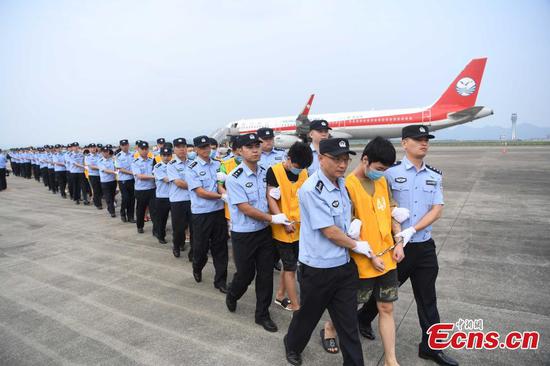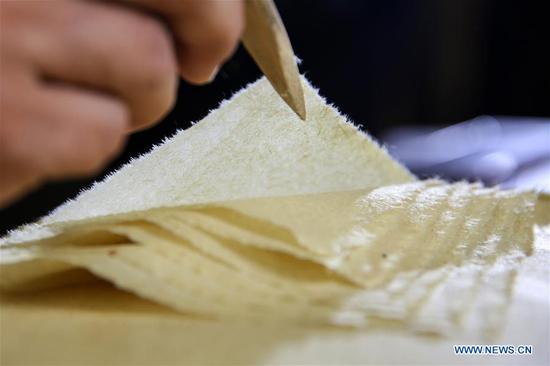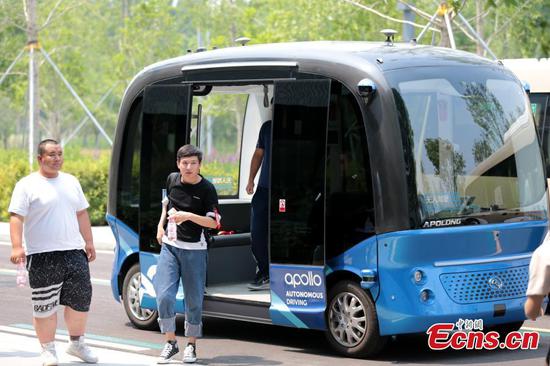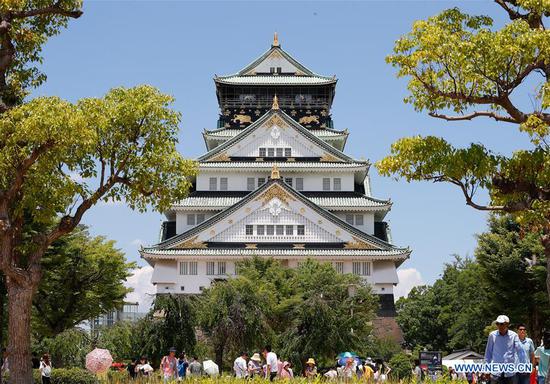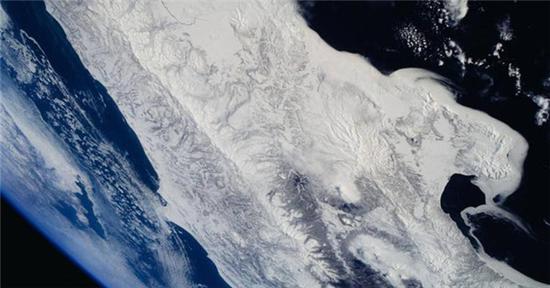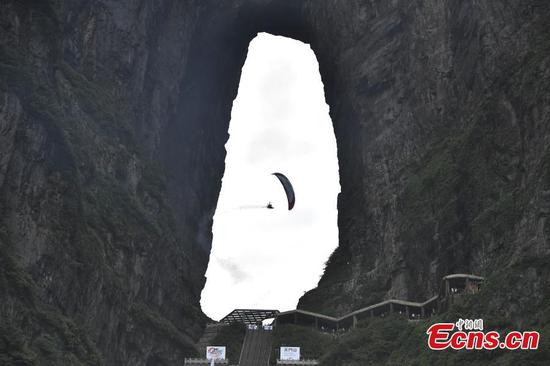
U.S. President Donald Trump steps into the DPRK with its top leader, Kim Jong-un, in Panmunjom village in the Demilitarized Zone on Sunday. (Photo/Xinhua)
With smiles and handshakes, a third meeting between U.S. President Donald Trump and DPRK top leader Kim Jong-un unfolded at the Korean border village of Panmunjom in the Demilitarized Zone on Sunday, raising hopes for a revival of stalled nuclear talks.
Trump, escorted by Kim, briefly crossed the military demarcation line between the Democratic People's Republic of Korea and the Republic of Korea on Sunday afternoon, onto DPRK soil, becoming the first sitting U.S. president to set foot in the country.
After exchanging handshakes and a few words, the two leaders stepped back to the ROK side of the village and met with ROK President Moon Jae-in, before going into one-on-one talks behind closed doors at the Freedom House on the southern side of Panmunjom.
Trump, who is on a two-day visit to the ROK that started on Saturday, extended an impromptu invitation to the DPRK leader on Friday via Twitter to come to the DMZ "just to shake his hand and say Hello". The Associated Press said that Kim accepted Trump's invitation at noon on Sunday.
Describing his meeting with Kim as "a special moment", Trump touted their "great relationship". Kim said their "handshake of peace" in a location that was "the symbol of the division" showed that "we are willing to put the past behind us".
Asked by a reporter if he's willing to invite Kim to the White House, Trump said, "I would invite him right now to the White House."
The snap encounter marked the third time the two have met. They met for the first time in Singapore in June last year and agreed to improve relations and work toward the denuclearization of the Korean Peninsula. But there has been little progress since then.
The second summit, in Hanoi, Vietnam, in February, broke down when the two sides failed to narrow differences between Washington's demand for Pyongyang to give up its nuclear weapons and Pyongyang's demand for sanctions relief.
Teng Jianqun, director of the China Institute of International Studies' department for U.S. studies, said the DMZ meeting between the two leaders is "symbolic and meaningful", as it reaffirmed their commitment to denuclearization and the peace process on the Korean Peninsula, although details will likely be discussed in future working-level dialogues.
"Even though the meeting at the DMZ was short, it surely has created an important watershed moment in easing tensions on the Korean Peninsula," Teng said, adding that it appears to be hard for the two countries to resolve their differences right away.
In a news conference after his summit with Moon on Sunday, Trump stressed again that he is "in no rush" in denuclearization talks with Pyongyang and that the "sanctions are still on" against Pyongyang.
Guo Rui, a professor of international relations at Jilin University, said, "Although the DMZ meeting has created significant momentum that will help restart a change on the Korean Peninsula, as sanctions will remain in place, chances are not high that the meeting will lead to a major change in the short-term trajectory of denuclearizing the peninsula."









